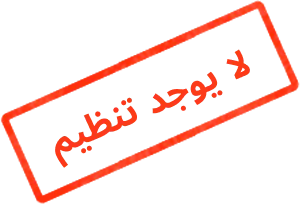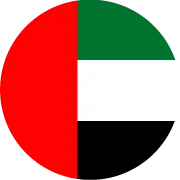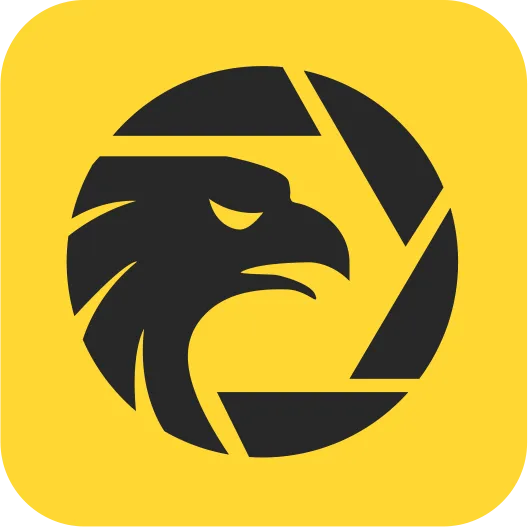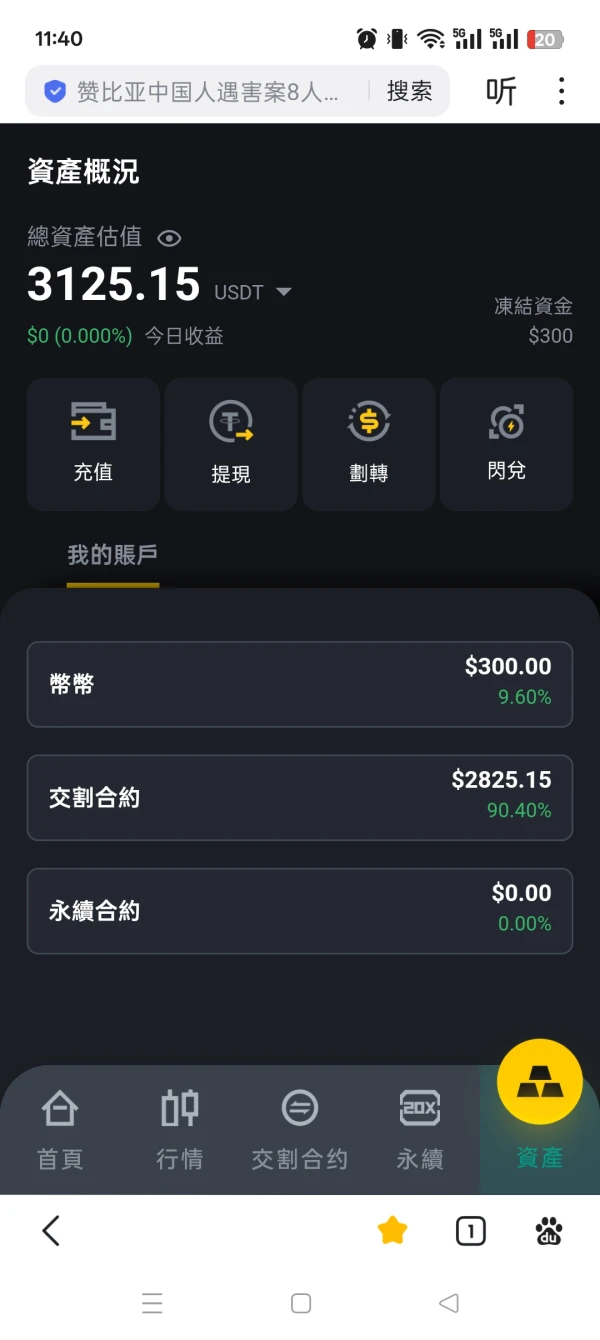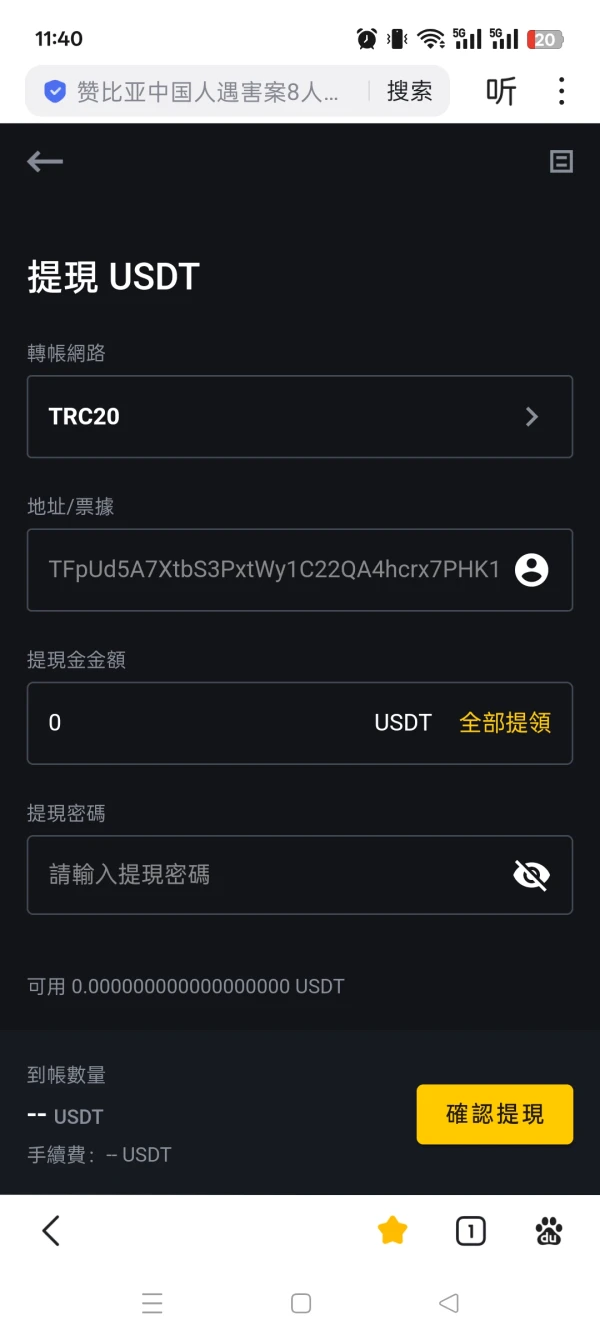مقدمة عن الشركة
| DGCX ملخص المراجعة | |
| تأسست | 2005 |
| الدولة/المنطقة المسجلة | الإمارات العربية المتحدة |
| التنظيم | لا يوجد تنظيم |
| أدوات السوق | العملات، الأسهم، الهيدروكربونات، المعادن |
| حساب تجريبي | / |
| الرافعة المالية | / |
| الفارق | / |
| منصة التداول | Cinnober (بواسطة Nasdaq) عبر واجهة برمجة التطبيقات الثابتة |
| الحد الأدنى للإيداع | / |
| دعم العملاء | هاتف: +971 4361 1600 |
| البريد الإلكتروني: info@dgcx.ae | |
معلومات DGCX
DGCX هي بورصة مشتقات مقرها في الإمارات العربية المتحدة تأسست في عام 2005، تقدم تداول عقود المستقبل عبر العملات، المعادن، الهيدروكربونات، والأسهم. تعمل على منصة مؤسسية قوية (Cinnober بواسطة Nasdaq) ولكنها في المقام الأول متاحة للأعضاء وليست ودية للتجزئة.
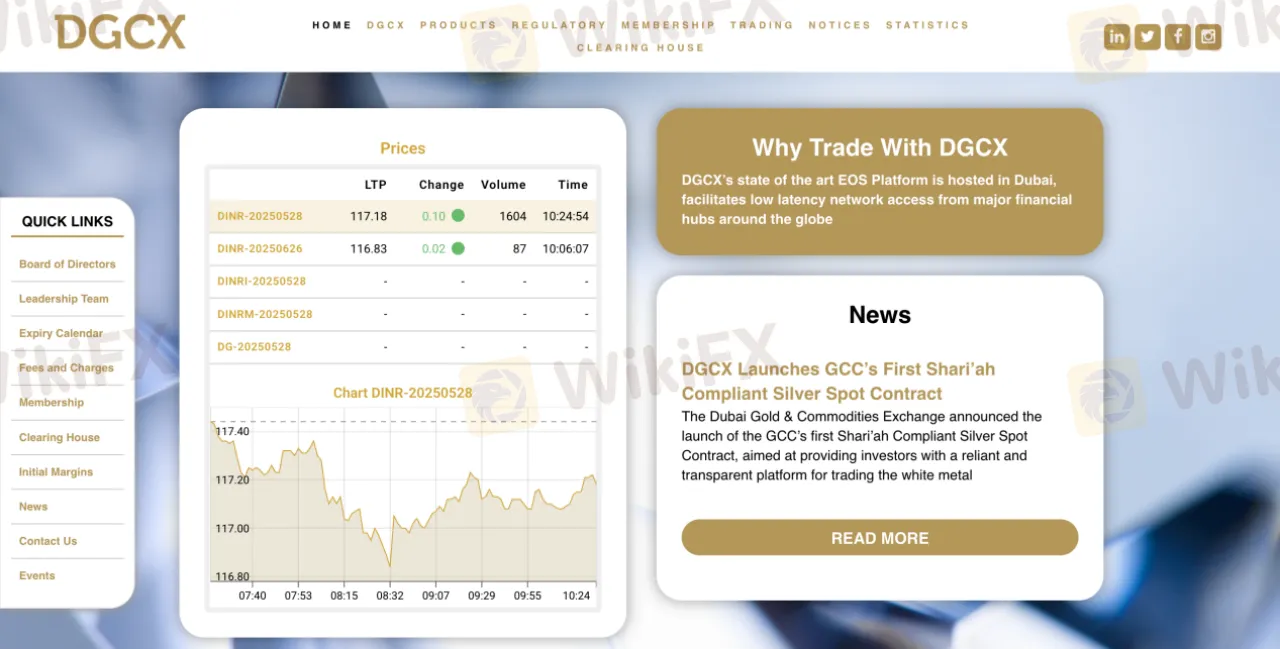
الإيجابيات والسلبيات
| الإيجابيات | السلبيات |
| مجموعة واسعة من الأدوات المستقبلية | لا يوجد تنظيم |
| جدول رسوم شفاف | رسوم تداول وعضوية مرتفعة |
| وجود قوي في أسواق الشرق الأوسط | معلومات محدودة حول شروط التداول |
هل DGCX شرعية؟
DGCX (Dubai Gold & Commodities Exchange) مقرها دبي وتعمل تحت إشراف مركز دبي للسلع المتعددة (DMCC). ومع ذلك، فإنها لا تحمل ترخيصًا من أي من الجهات الرقابية المالية الدولية الرئيسية مثل FCA (المملكة المتحدة)، ASIC (أستراليا)، أو NFA (الولايات المتحدة).
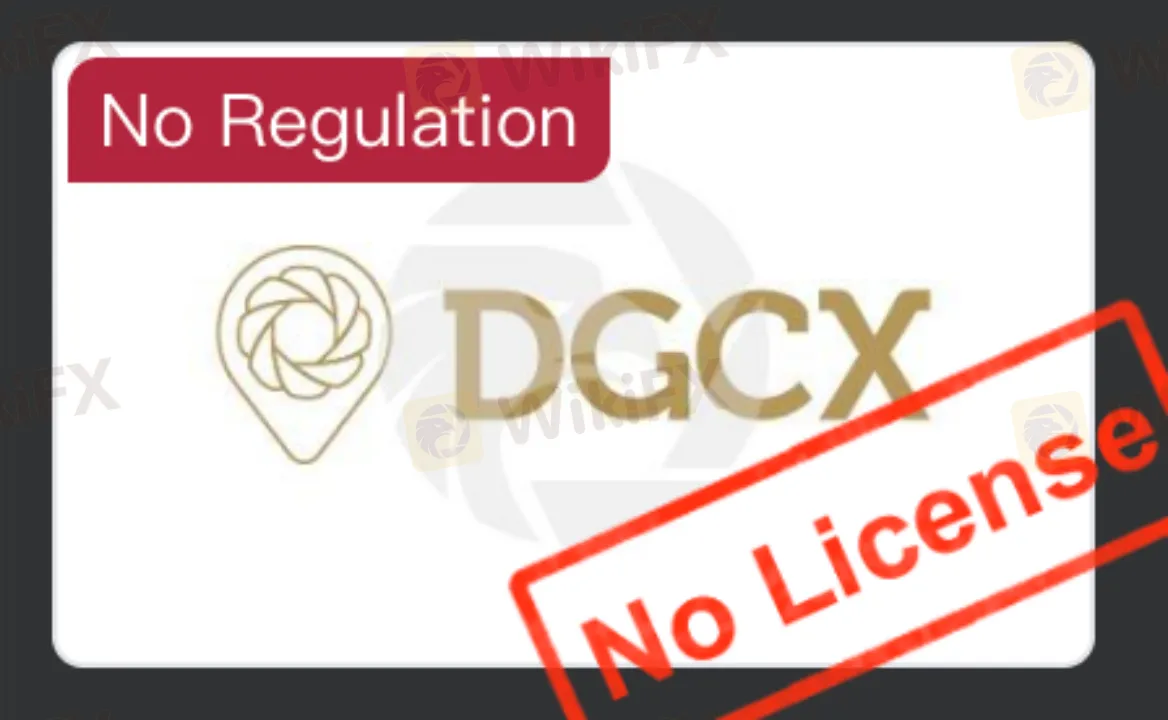
تم تسجيل نطاق dgcx.com في 18 يناير 2002، وسينتهي في 18 يناير 2027. تم تحديثه آخر مرة في 30 أغسطس 2024. يتمتع النطاق حاليًا بحالة مقفلة تمنع الحذف أو التجديد أو النقل أو التحديث. تمت إدراج خوادم الأسماء الخاصة به تحت Bodis، مما يوحي بأن الموقع قد يكون متوقفًا أو غير نشط.
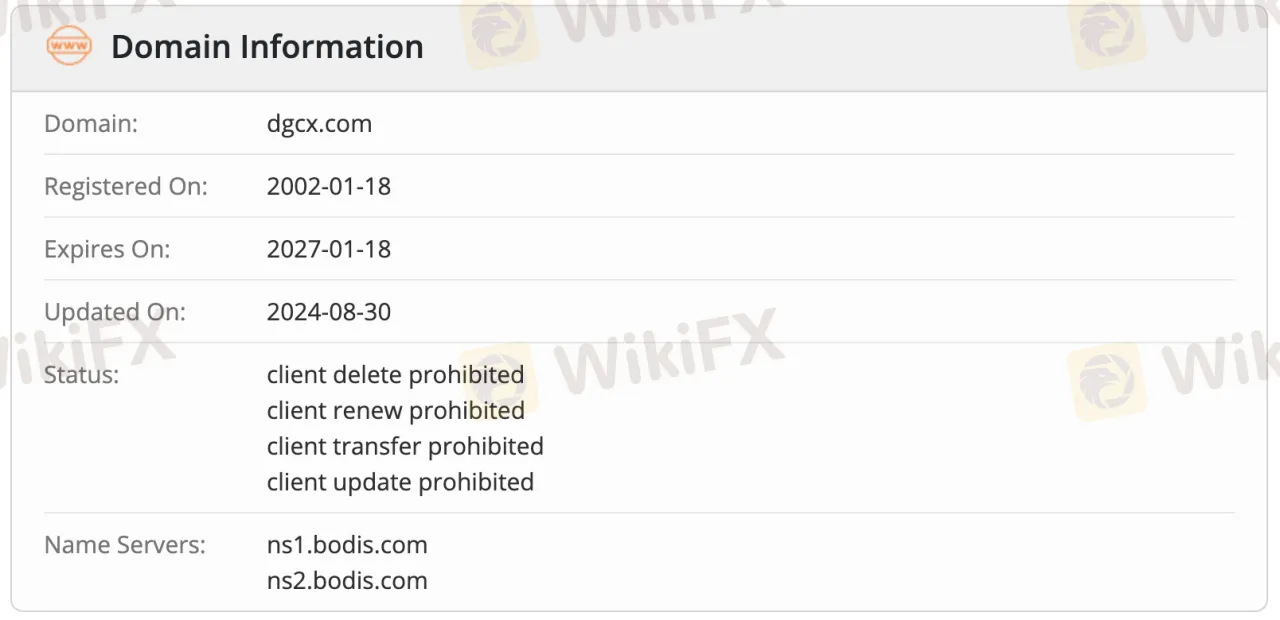
ما الذي يمكنني تداوله على DGCX؟
DGCX تقدم مجموعة منتجات تتكون من 4 أنواع، تشمل مجموعة متنوعة من أزواج العملات، وعقود المعادن الثمينة، وعقود الهيدروكربونات، والأدوات ذات الصلة بحقوق الملكية.
| الأدوات التجارية | مدعوم |
| العملات | ✔ |
| الأسهم | ✔ |
| الهيدروكربونات | ✔ |
| المعادن | ✔ |
| الفوركس | ❌ |
| السلع | ❌ |
| المؤشرات | ❌ |
| الأسهم | ❌ |
| العملات الرقمية | ❌ |
| السندات | ❌ |
| الخيارات | ❌ |
| صناديق الاستثمار المتداولة | ❌ |
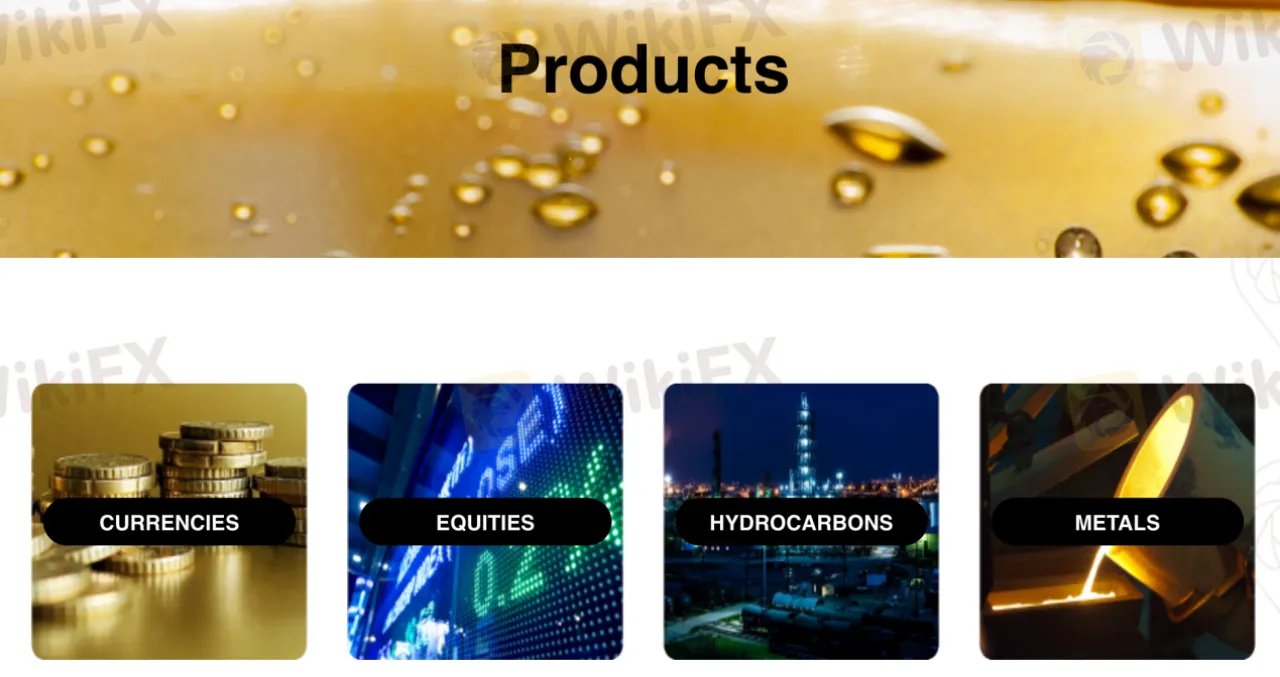
العضوية
| العضوية | رسوم التقديم | الميزة | مناسبة لـ |
| عضوية الوسيط | $75,000 | التداول نيابة عن العملاء؛ يتطلب ترخيص هيئة الرقابة المالية | الوسطاء المرخصين، الشركات المالية |
| عضوية التداول | $30,000 | التداول فقط لحسابه الخاص | المتداولون المؤسسيون أو الخاصون |
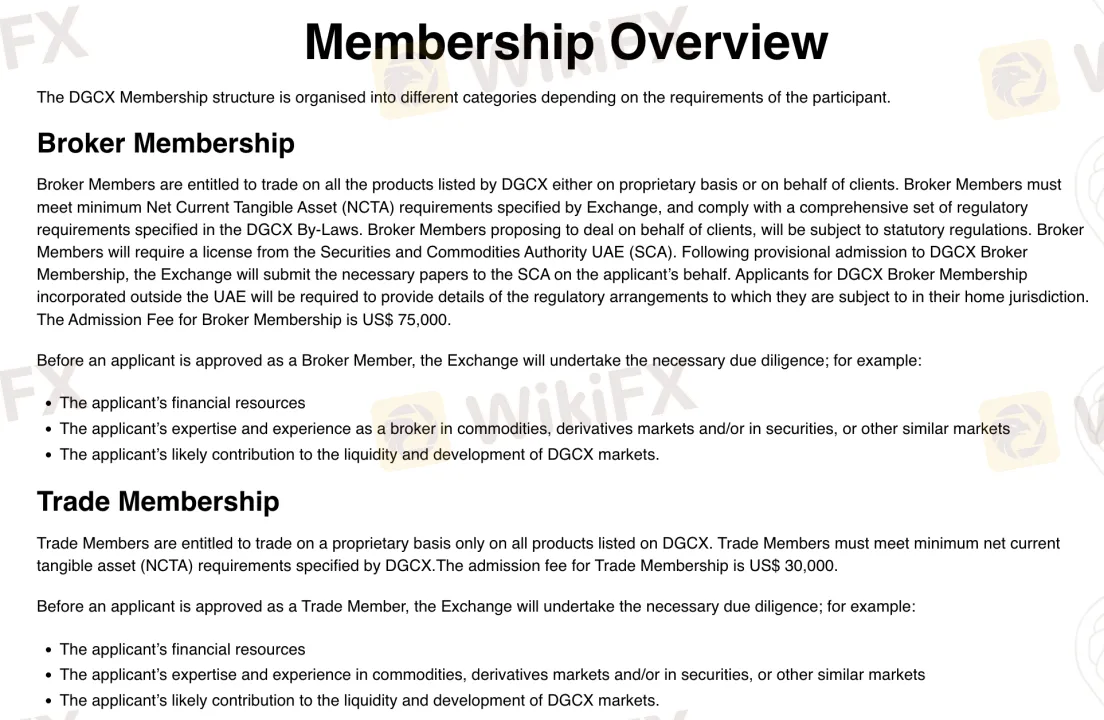
رسوم DGCX
رسوم تداول DGCX مرتفعة مقارنة بسماسرة التجزئة النموذجيين، خاصة بالنسبة للمعادن الثمينة. من المتوقع ذلك نظرًا لأن DGCX تعمل كبورصة آجلة على مستوى مؤسسي بدلاً من سمسار CFD تجزئة. DGCX تفرض رسومًا ثابتة لكل جانب لكل عقد. تختلف هذه الرسوم حسب المنتج.
| العقد | رسوم التداول | رسوم التسوية | الإجمالي (باستثناء ضريبة القيمة المضافة/رخصة هيئة الرقابة المالية) |
| عقد الذهب اليومي الآجل (DGFC) | $125.00 | $50.00 | $175.00 |
| عقد الروبية الهندية المصغر الآجل (DINRM) | $0.04 | $0.04 | $0.08 |
| عقد الدولار الأمريكي/اليوان الصيني الآجل (DUSDCNH) | $0.15 | $0.05 | $0.20 |
| عقود الأسهم الفردية - الهندية (SSF) | $1.00 | $0.14 | $1.14 |
| عقد الذهب الفوري الشريعي (DGSG) | $13.00 | $2.00 | $15.00 |
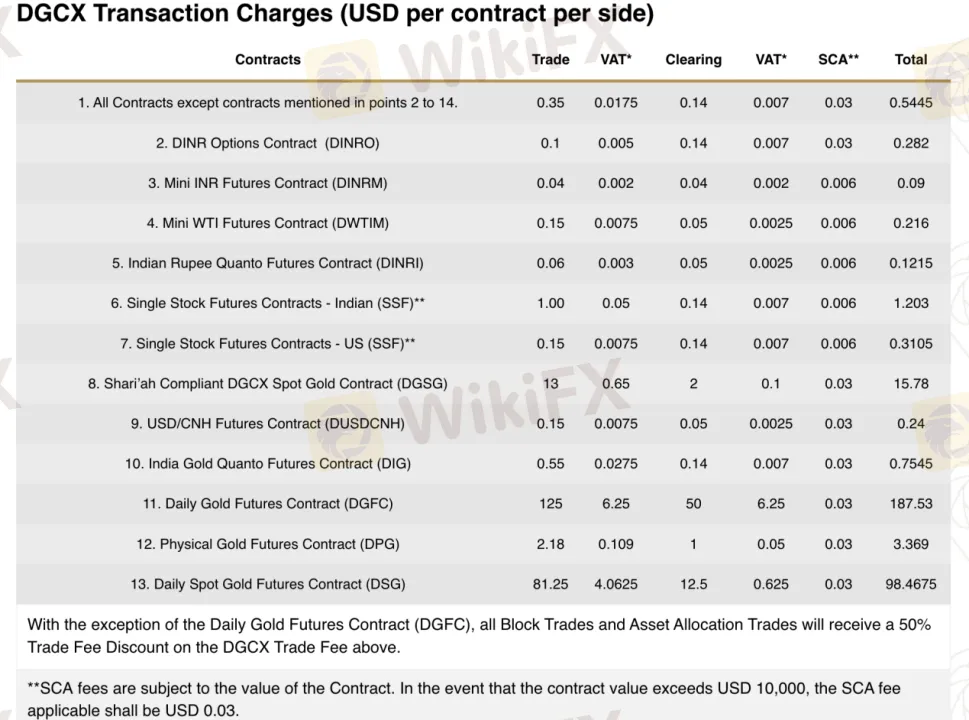
أسعار السواب
DGCX لا تطبق أسعار تبادل تقليدية مثل تلك المستخدمة من قبل وسطاء CFD التجزئة. بدلاً من ذلك، تفرض عقوبة على نقص التسوية الليلية للأموال بسعر يبلغ 36% سنويًا.
| الشرط | العقوبة |
| معدل العقوبة القياسي | 36% سنويًا |
| نقص يستمر لأكثر من يومين | تضاعف العقوبة من اليوم الأول |
| أكثر من 3 نقص في شهر ميلادي | تضاعف العقوبات المستقبلية |
| عواقب إضافية | فقدان حقوق التداول، إغلاق مواقع القوة بالقوة |

منصة التداول
| منصة التداول | مدعومة | الأجهزة المتاحة | مناسبة ل |
| Cinnober (بواسطة ناسداك) | ✔ | أجهزة سطح المكتب / الأنظمة المؤسسية (عبر واجهة برمجة التطبيقات FIX) | التجار المؤسسيين والمحترفين الذين يحتاجون إلى وصول مباشر إلى السوق |



